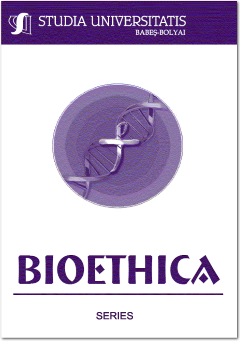ETHICAL ISSUES RELATED TO THE EVALUATION OF FACTORS THAT INCREASE THE RISK FOR ADVERSE CHILDHOOD EXPERIENCES
ETHICAL ISSUES RELATED TO THE EVALUATION OF FACTORS THAT INCREASE THE RISK FOR ADVERSE CHILDHOOD EXPERIENCES
Author(s): Anamika Jain, Tim Carr, Magdalena IorgaSubject(s): Religion and science , School education, Vocational Education
Published by: Studia Universitatis Babes-Bolyai
Keywords: adverse childhood experiences; physical health; psychological health; chronic disease; parents; victimisation; ethics;
Summary/Abstract: Adverse childhood experiences are the results of traumatic events that children are passing till their eighteen years old. Many factors are influencing the development of adverse childhood experiences (ACE) and risk factors were also identified by many researchers. Family-related problems, environment, socio-economic status, abuse, etc. are all determinants of ACE. Many studies showed that there is a strong link between ACE and psychological and physical health problems in adult life, meaning that ACE should be treated as public health problem. But some ethical problems arise from identifying ACE during childhood. Accordingly, to the theory of Loftus, negative memories could be implanted. The evaluation of ACE should be done with a lot of responsibility, considering all ethical issues in order to assure a proper psychological recovery and to avoid adulthood health problems.
Journal: Studia Universitatis Babes-Bolyai - Bioethica
- Issue Year: 63/2018
- Issue No: 1-2
- Page Range: 27-46
- Page Count: 20
- Language: English

